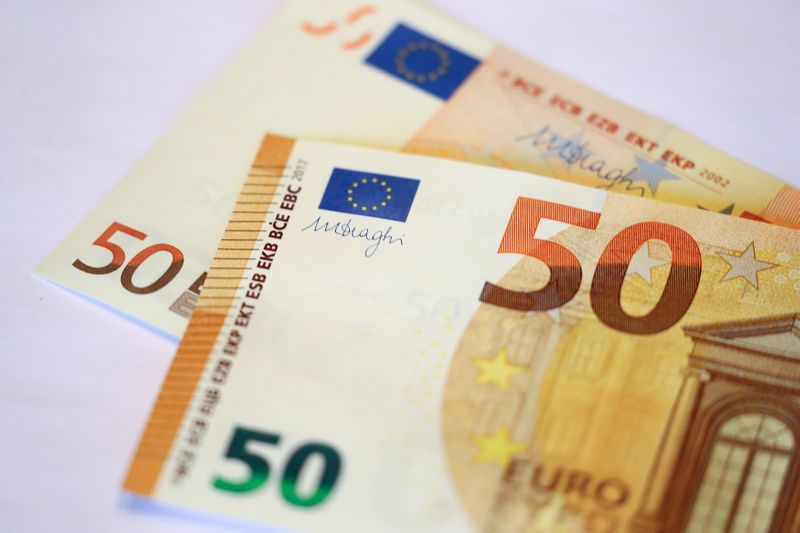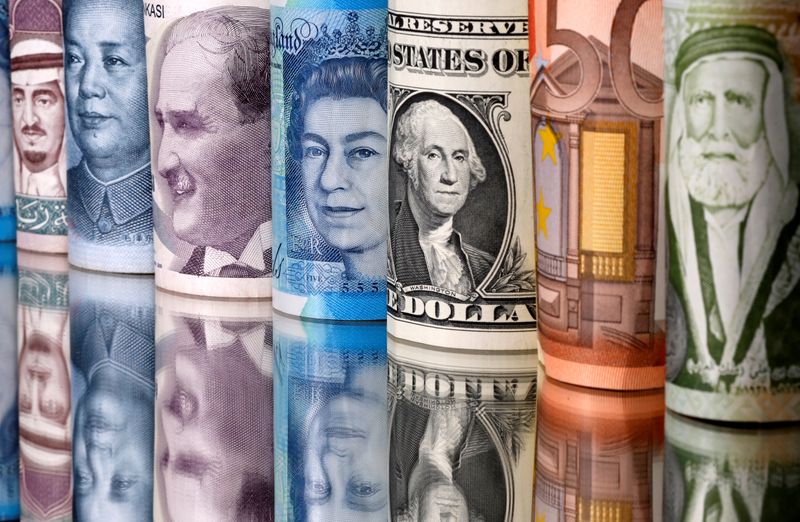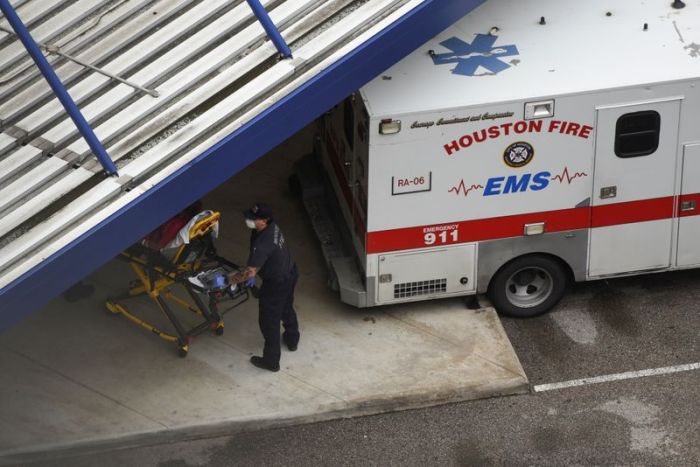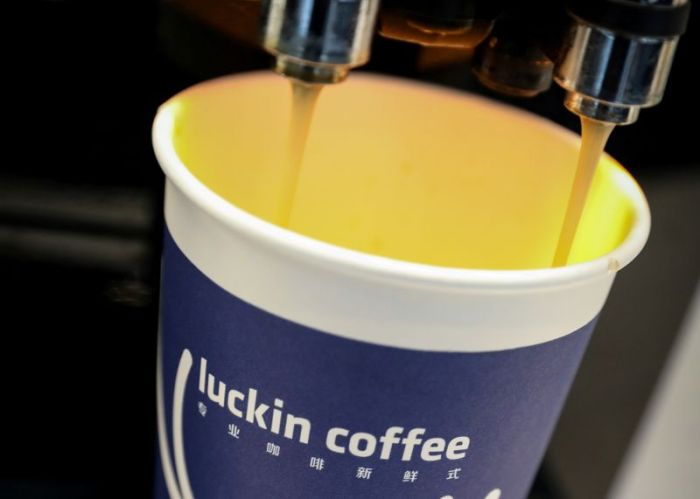NEW YORK (Reuters) – The euro jumped to one-week highs following positive economic data on Tuesday, while the Australian dollar and other higher-risk currencies strengthened after U.S. officials confirmed that the U.S.-China trade deal remained intact.
The euro bounced following a sign of recovery this month in the euro zone economy’s downturn caused by the coronavirus pandemic. IHS Markit’s Flash Composite Purchasing Managers’ Index (PMI), seen as a good gauge of economic health, recovered to 47.5 from May’s 31.9, moving closer to the 50 mark separating growth from contraction. In April it hit a record low 13.6.
“The story in the G10 is the euro zone PMIs coming in above expectations,” said Vassili Serebriakov, an FX and macro strategist at UBS in New York. Those economic readings are encouraging “in the sense that growth is rebounding a bit faster than markets expected.”
Investors are weighing better-than-expected economic data against increases in new cases of the coronavirus in certain areas across the globe.
The greenback had briefly gained overnight on safety buying after White House trade adviser Peter Navarro said the U.S.-China trade pact was “over.”
Risk sentiment got a boost after Navarro walked back those remarks, saying they were taken out of context. U.S. President Donald Trump later confirmed in a tweet that the deal with China was “fully intact.”
“We expect limited further fallout, with President Trump expected to remain committed to the phase one trade deal in the run up to the election,” said Lee Harman, currency analyst at MUFG.
“However, last night’s price action does highlight that the FX market remains sensitive to trade policy uncertainty. It remains a potential trigger for higher volatility,” he said.
The euro was last up 0.46% on the day at $1.1310, after getting as high as $1.1337, the highest since June 16.
The Australian dollar jumped 0.42% to $0.6934, after earlier reaching $0.6973, also the highest since June 16.
The dollar slipped 0.37% against the yen to 106.4700 yen, after getting as low as 106.06 yen, the weakest since May 7.
U.S. data on Tuesday showed that U.S. business activity contracted for a fifth straight month in June, while sales of new U.S. single-family homes increased more than expected in May.
Better-than-expected U.S. macroeconomics reports have elevated Citi’s U.S. economic surprise index to record highs and emboldened expectations that a recovery from the slump caused by the coronavirus pandemic may not take as long as some analysts feared.
(Additional reporting by Olga Cotaga in London; Editing by Dan Grebler and Chizu Nomiyama)




















